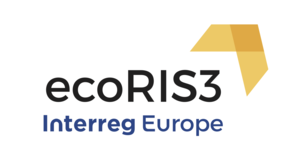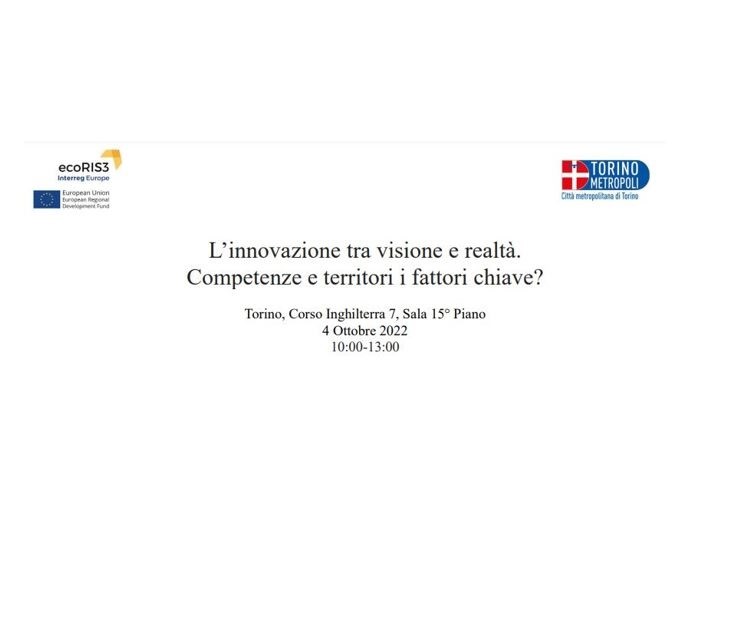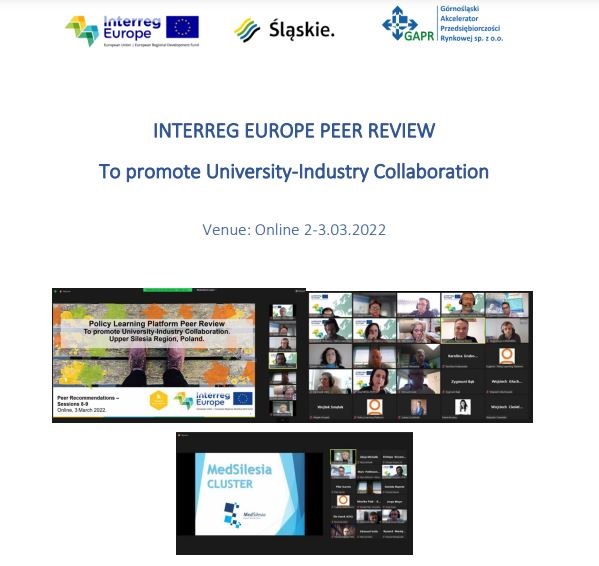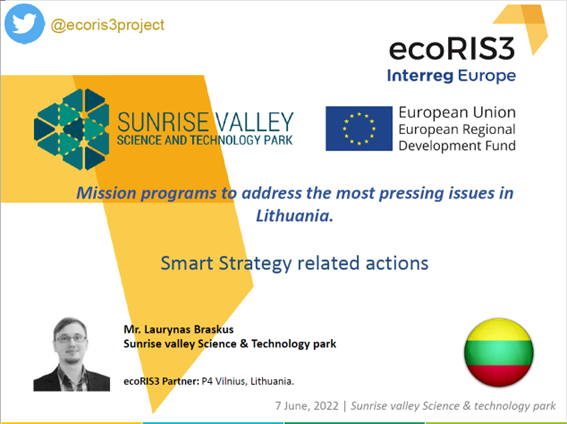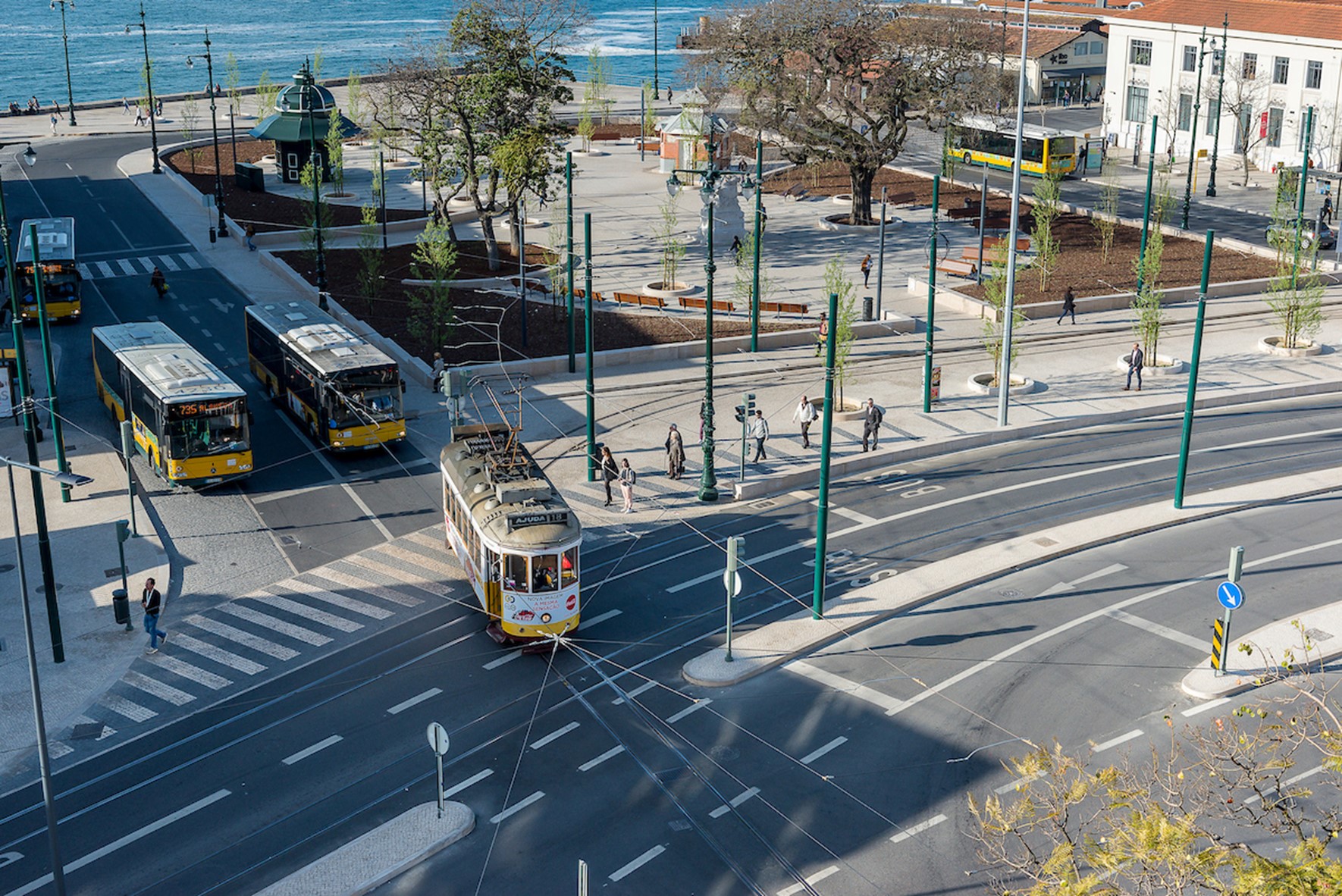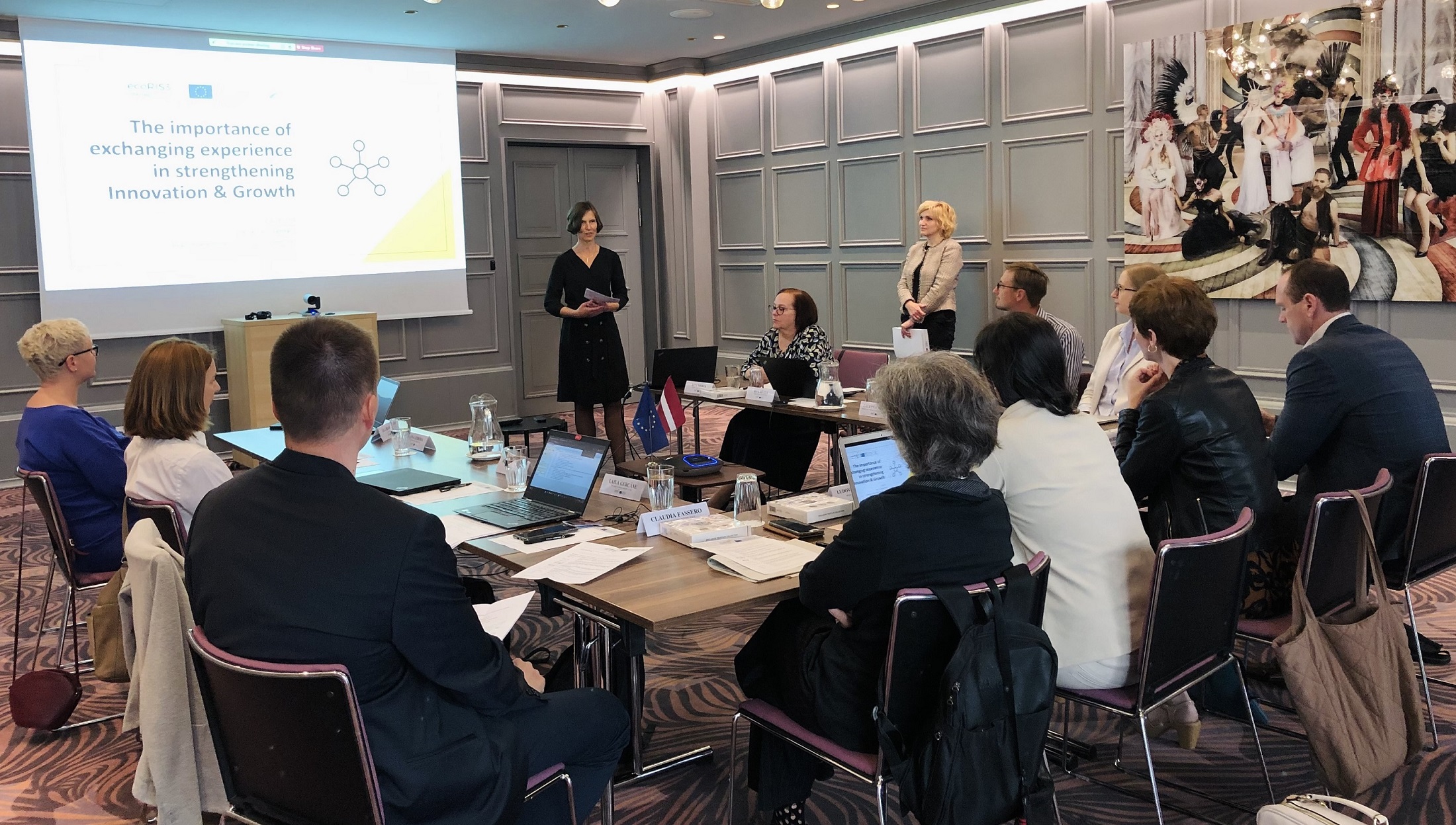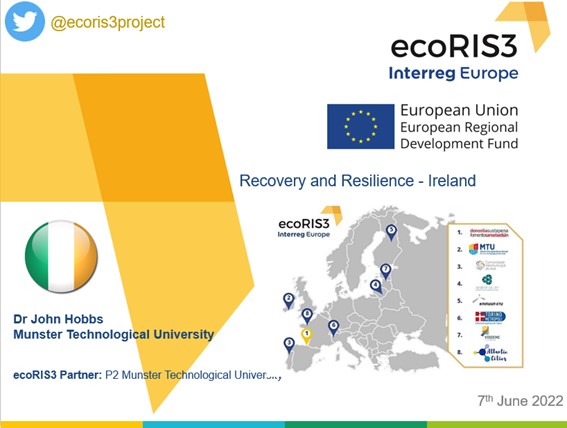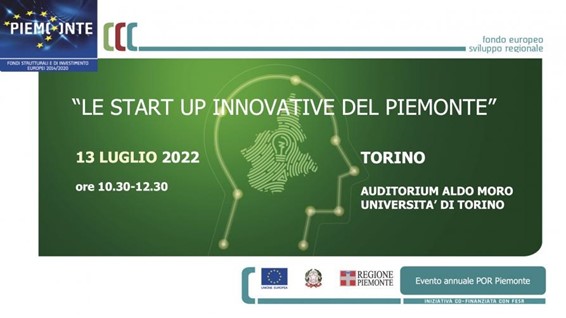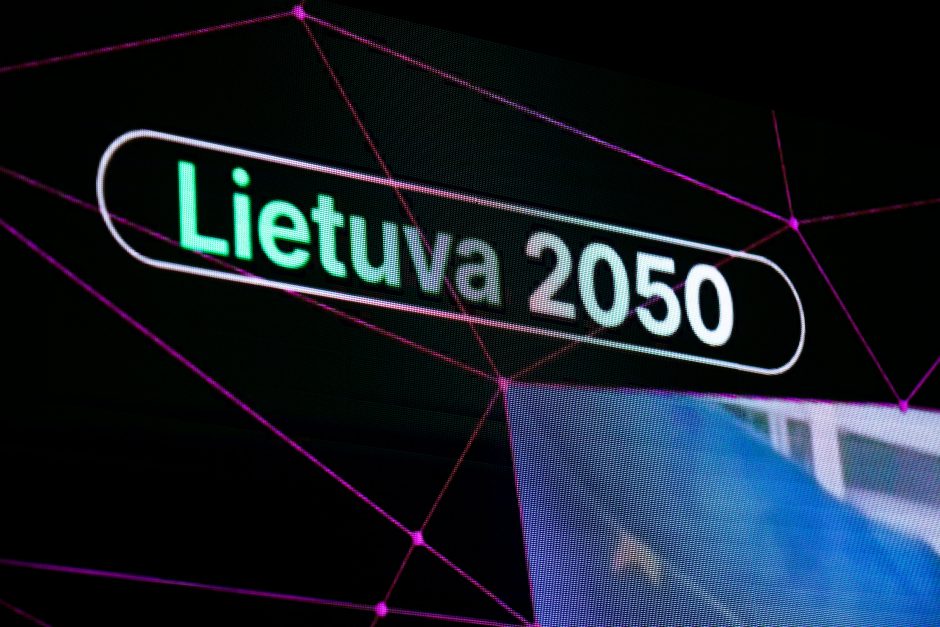During the “Vidzeme Innovation Week” a Stakeholder meeting was held where representatives of various governmental, municipal institutions, entrepreneurs, as well as research and education institution representatives discussed the necessary improvements for the development of smart specialisation areas in the Vidzeme region (Latvia). Within the project “ecoRIS3” Vidzeme Planning Region is developing an Action plan to improve regional policy instruments to promote the innovation ecosystem and conclusions of the discussion is valuable information for creating the strategy.
The session was organized to hear and compile the views of those involved in the innovation ecosystem. The representative of the Ministry of Education and Science of the Republic of Latvia spoke about the situation of smart specialisation in Latvia. Representatives of Vidzeme Planning Region (VPR) presented the progress made in the development of smart specialisation in the region. In turn, science and private sector representative Inese Suija-Markova reminded about the importance of innovation in business development.
Janis Paiders (The Ministry of Education and Science of the Republic of Latvia) in his speech emphasized that the results of innovation in Latvia as compared to the Europes scale are average, but with significant progress in recent years. Latvia has educated workforce and a good environment for innovation, but there are problems with the share of state investment in research and development (R&D), as well as the small and medium-sized company involvement in innovation, he said. Latvia has challenges to provide adequate investment in basic science in R&D to have sufficient capacity for knowledge transfer in the long term (Link to video here).

Analysing the number of joint publications and overall participation in international research projects, J. Paiders also marked the situation with Latvian scientist cooperation partners. European countries are the key partners, but also important is the United States of America. In recent years cooperation between Latvia and many Asian and South American countries has increased. The overall level of Latvian scientist international cooperation is the third worst in comparison to other EU countries, and it is significantly behind Lithuania and Estonia.
The number of project applications submitted to the EU research and innovation programme Horizon 2020 (H2020) shows that only 43% of the 119 municipalities have had organisations that have submitted at least one project application. Riga planning region has significantly more applications in comparison to other regions while Vidzeme planning region has the second lowest indicator. In Vidzeme, organisations situated in Cesis County and Valmiera are among the most active project applicants in Latvia. And some of them are - VPR, Vidzeme University of Applied Sciences, Ltd. “Zelta Liesma”, Valmiera City Municipality, Ltd. "VLT", Ltd. "Sungis", Ltd. "BalticFloc", Ltd. "Cēsu siltumtīkli", Cesis Children and Youth Center, Cesis Municipality, Institute of Agricultural Resources and Economics, Association "Latvijas Lauku forums", Centre for Innovation and Entrepreneurship Vidzeme and Vidzeme Tourism Association. Among the implemented H2020 projects, VPR has specialization in bioeconomy.
During the meeting Deputy Chairman of the VPR Development Council Gints Kukainis presented VPR implemented activities that strengthen smart specialisation by supporting the entrepreneurship and innovation. He highlighted the implemented tourism marketing activities, the representation of companies in Latvian and foreign exhibitions, the promotion of good practice examples in the region, company study visits, the establishment of business contacts and other activities.
During the discussion was pointed out that currently a number of innovation support instruments are available but are significant obstacles to use them. For example, a lack of information between the ecosystem players themselves about possibilities and it impedes the innovation development in the regions.
A number of other aspects were also highlighted. For example, the existing gap in cooperation between entrepreneurs and scientists. The lack of adequate data from a regional perspective also hinders the full assessment of smart specialisation in the region. There is still a belief that bureaucracy discourages the application for innovation support activities. Sometimes useful support tools are not recognizable, although information is publicly available. For example, in Latvia, the Investment and Development Agency of Latvia provides Technology Scouts Services which can be a very useful tool for the development of innovation. It is important to popularise practical examples with the experience of entrepreneurs who have already used this service and can define benefits.
Additional information: Laima Engere, ecoRIS3 Project Manager in Vidzeme Planning Region, [email protected].
